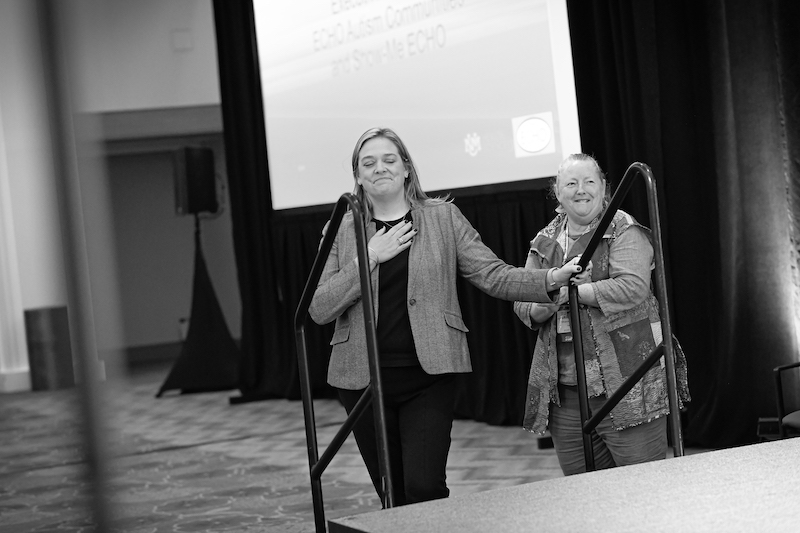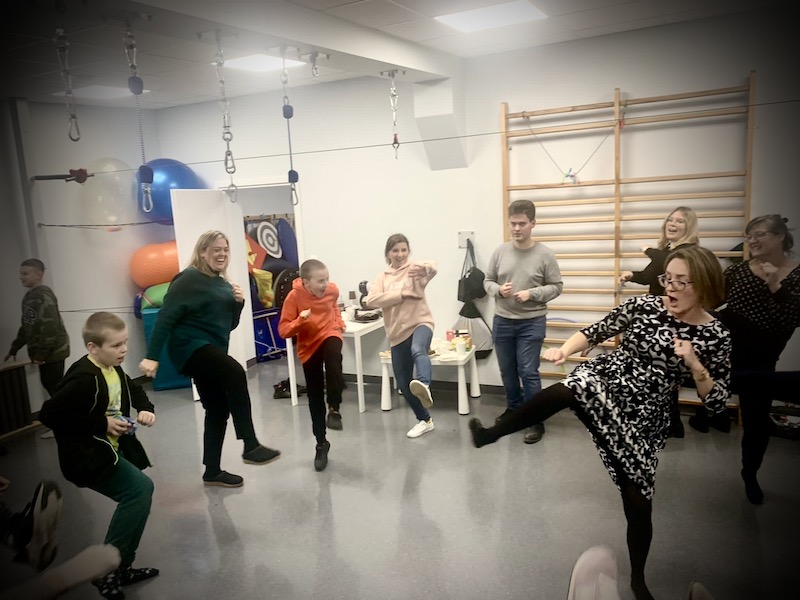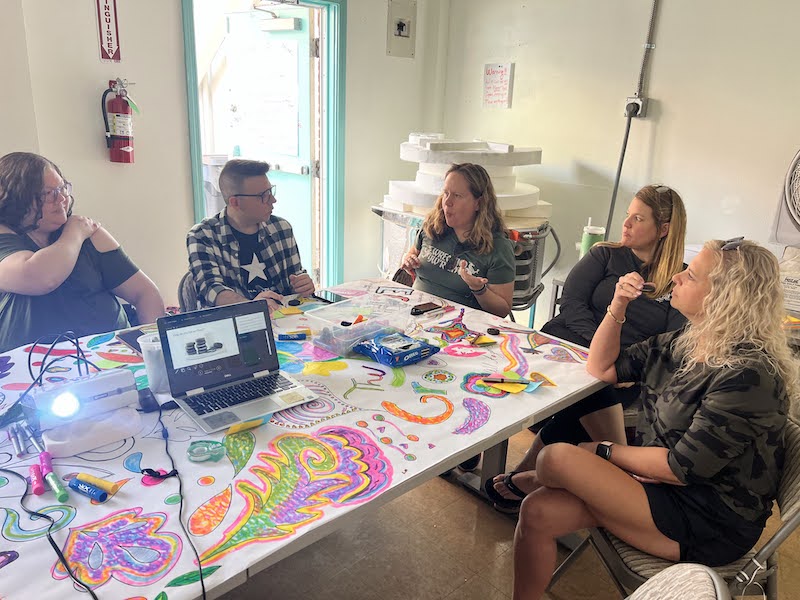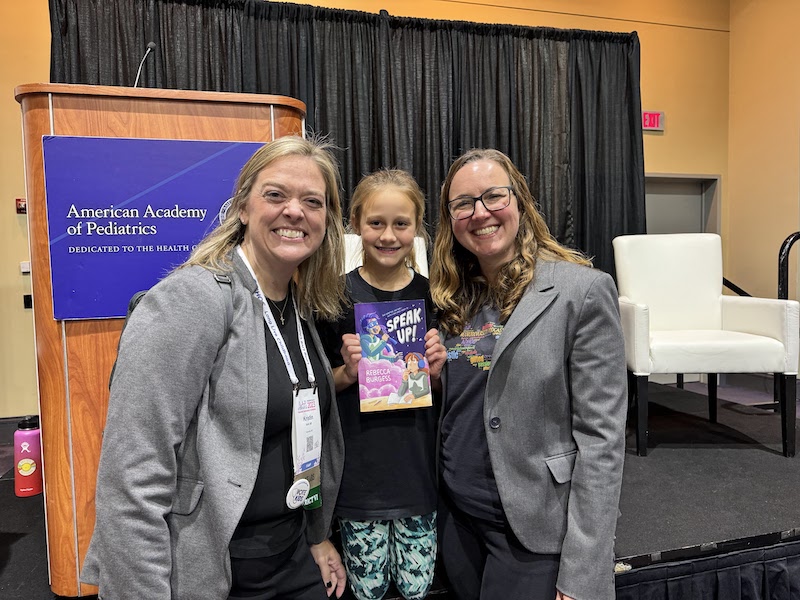Recipient of the 2023 MetaECHO David Meyers Service Award, Dr. Kristin Sohl launched ECHO Autism in 2015 with her home state of Missouri in mind. Since then, she has been at the helm as ECHO Autism expanded to a global community of more than 40 countries ensuring children and families around the world receive better diagnoses, faster care, access to more experienced clinicians, and wraparound supports. We spoke with Dr. Sohl on defining a calling, the magic of the ECHO Model, and eye-opening moments in ECHO sessions.

At the 2023 MetaECHO conference, Dr. Sohl received the David Meyers Service Award for her decade of work furthering diagnosis, capacity, and ongoing education for autism care.
There is now a global ECHO Autism network, but initially, it was a pilot project based only in Missouri. What catalyzed growth for ECHO Autism?
Sohl: Back in 2010, I was getting so frustrated seeing my patients come from long distances to see me, an autism expert, for basic autism care. There was a six to 18-month bottleneck everywhere with getting kids diagnosed. In June 2014, when I attended Project ECHO’s immersion training with the Missouri Telehealth Network and listened to how the ECHO Model had applied to HCV, I literally started to sketch out a framework for ECHO Autism on a scratch piece of paper.
We received funding from several partners for a pilot program in 2015. Based on that success, we secured federal funding for a 10-site clinical trial that taught the ECHO Model for autism to 150 primary care physicians all over the U.S. and Canada. After we published our results in JAMA Pediatrics, a well-known journal, our work received significant interest, which helped support more and more programs.

Dr. Sohl, second from left, teaching therapy in January 2024 in Poland, where she traveled to help expand ECHO Autism’s work.
For those who might not know as much about autism care, can you explain the impetus for ECHO Autism?
Sohl: About 1 in 36 people have received or will be identified as being on the autism spectrum. But pediatricians only spend four weeks during their 36-month residency learning about developmental disabilities or similar topics like autism, Down syndrome, spina bifida, ADHD – you name it.
Limited training and exposure leads many clinicians to refer to academic medical centers and specialty centers, creating a bottleneck with too few specialists to serve the growing number of children on the autism spectrum. Children often wait more than a year for diagnosis – these delays in intervention significantly impact outcomes for children.

In fall of 2023, members of the ECHO Autism team gathered in Albuquerque for a team retreat.
At its heart, what makes the impact of ECHO Autism different?
Sohl: Really figuring out how to teach and mentor clinicians on autism care is a craft – you don’t have any lab work, any blood work, any biological tests. We bring in parents, people with lived experience with autism, to create those “aha” moments of bidirectional learning.
We provide highly nuanced, clinical expertise at scale. We teach clinicians how to tease apart what they’re seeing and hearing so they can gain skills to serve children in their community, as a local expert.
Now we have more than 15 pathways in the ECHO Autism curriculum. We still have an emphasis on early diagnosis, but we also have ECHO Autism for psychologists and teachers and therapists.

Dr. Sohl, at left, joined members of the ECHO Autism team at the 2024 American Academy of Pediatrics conference.
In this journey, has anything stayed the same? Has anything surprised you?
Sohl: It has always been about “serving the underserved.” We needed to create better mechanisms to engage with clinicians serving in rural or underserved locations. ECHO Autism allows us to move knowledge to them, and establish systems of care, to make autism best practices more accessible.
For me, the most amazing part has been watching other clinicians absolutely fall head over heels in love with this population. Participants who came to their first ECHO session more than eight years ago still come to ECHO sessions, but now they are the experts.
As a clinician in this often-overlooked space of developmental disabilities, what does Project ECHO mean to you?
Sohl: Finding ECHO changed the trajectory of my entire career and saved me from burnout. The ECHO Model allows me to create an incredible blend of all the levels of advocacy that I love, from children and families, to physicians and communities – to do the work that I had been doing, but magnify it.

